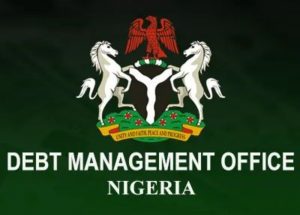As of June 30, 2022, DAILY POST has learned that Lagos, Delta, and Ogun are the three States in Nigeria with the highest domestic debt levels.
Many States borrowed more between the first and second quarters of 2022, according to the Debt Management Office (DMO). The 36 States and the Federal Capital Territory owed N4,842,838,992,386.22 in domestic debt as of March. However, as of the end of June, this had increased to N5,281,277,033,703.91.
As of the time under review, Lagos State has borrowed a total of N797,305,312,602.53. This shows that the debt profile of Lagos has increased from the N780,476,880,563.06 it was in March 31, 2022.
Also, the debt stock of Delta State skyrocketed within the three months period. From N163,478,454,259.54 in March this year, Governor Ifeanyi Okowa’s administration has increased the domestic debt of Delta to N378,878,236,830.76. This represents over 100 percent increase from March to June this year.
Ogun on the other hand is owing a total of N241,782,021,304.96. Though it stands among the top three most indebted States, Ogun debt figure has marginally reduced from the N241,979,216,147.55 it was in March.
A document released by the Debt Management Office indicates that Rivers is the fourth with a debt stock of N225,505,011,356.55. The DMO said Rivers State’s debt figure was as at September 30, 2021. No reason was given for the refusal of the South-South State to update its debt profile over a year ago.
DAILY POST reports that Imo State, with a domestic debt of N210,394,836,519.93, is the fifth. The State has borrowed more as the DMO report shows that the debt figure of Imo was N204,612,397,430.39 in March.
Akwa Ibom is sixth on the list, having borrowed a total of N203,951,611,822.07. This is a slight increase from the N203,112,373,546.77 it had in the first quarter of the year.
It was gathered that Cross River has a debt profile of N176,086,197,586; Oyo has borrowed N159,906,877,910; Osun and Bayelsa are owing N150billion each, while Plateau and Benue State owe N144.60billion and N143.54billion, respectively, as of the time under review.
In the same vein, Bauchi has borrowed up to N129billion; Kano, N125 billion; Gombe, N123.6billion; Adamawa, N120.6billion; Ekiti, N119.5billion; Zamfara, N115.7billion; Edo, N112.1billion; Kwara, N110.5billion; Abia, N107.6billion and Borno, N102.4billion.
Also, Yobe State has over N96.6billion as its domestic debt profile; Taraba, N90.8billion; Kogi has N90.5billion; Sokoto has N89.9billion; Enugu, N89.9billion; Niger, N80.9billion; Kaduna, N78.1billion; FCT has N75.7billion; Nasarawa, N72.9billion and Anambra, N72.4billion.
DAILY POST notes that Jigawa is the State with the lowest debt profile having borrowed a sum of N45,135,377,621.30. However, the debt profile of Jigawa also rose with over N3billion between March and June 2022. As of March, Jigawa’s domestic debt was N41,629,971,249.71.
Jigawa is followed by Ebonyi with N59.1billion; Kebbi, N60.4billion; Ondo with N62.2billion and Katsina with N66.6billion.
Meanwhile, many Nigerians have continued to seek explanations about the modes of borrowing these loans, the repayment plans and the purpose for which the monies are borrowed.

